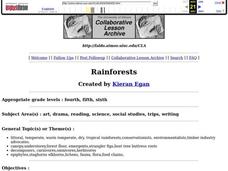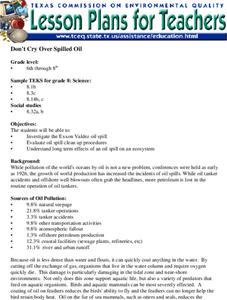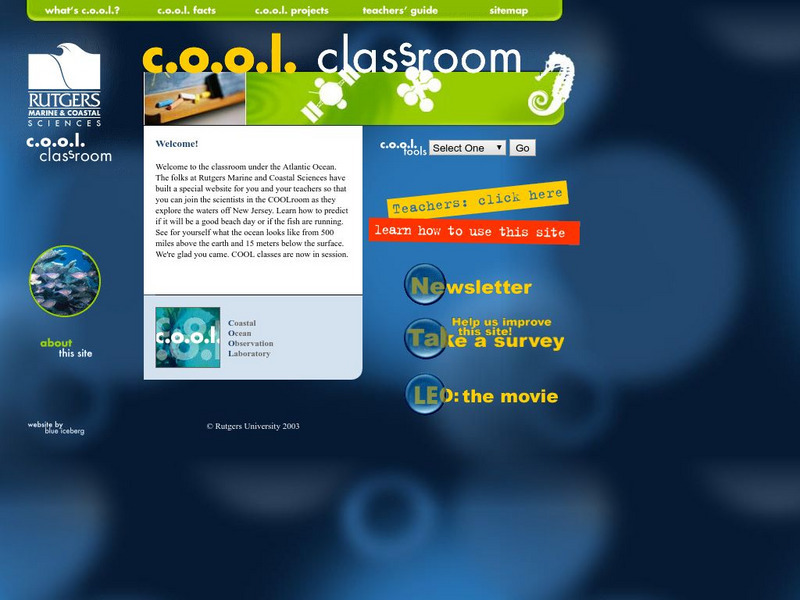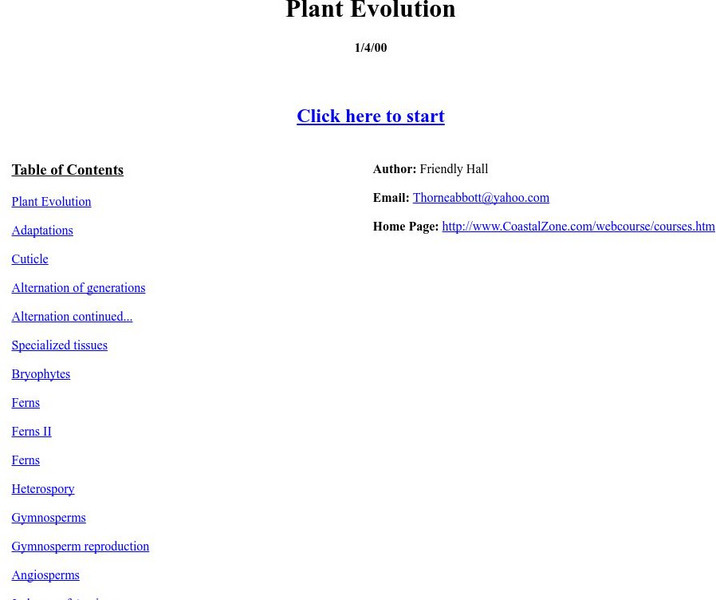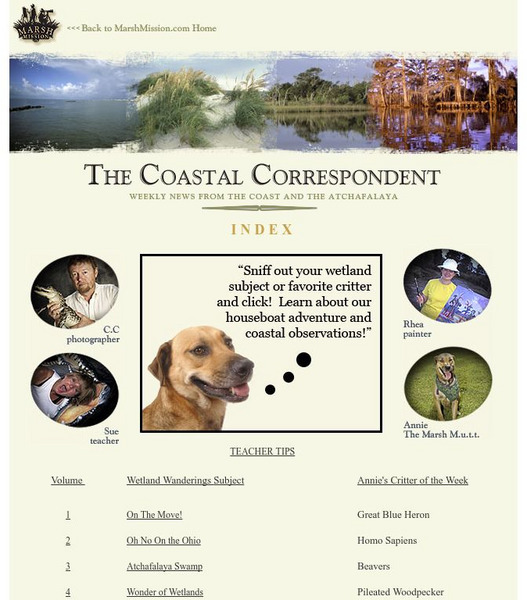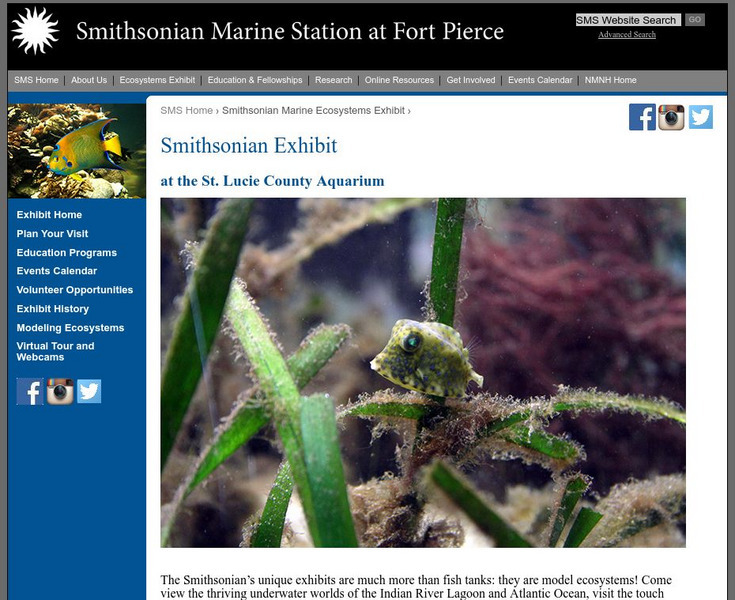Curated OER
There Are Algae in Your House!
Students demonstrate that, although we sometimes can neither smell nor taste them, many ingredients in our foods and household products come from the sea. They also investigate food eat to determine algae derivatives they contain.
Curated OER
Rainforests
Young scholars watch a video about the rainforest and create a large wall mural of rainforest features. Students write a first person point of view article by an endangered rainforest animal and discuss logging.
Curated OER
Is There Seaweed/Algae in Your Food?
Young scholars discover that seaweed/algae is a small part of the resources the oceans provide. By investigating common household products, students discover that human senses are not enough to detect the presence of seaweed/algae in food.
Curated OER
Don't Cry Over Spilled Oil
Students study the Exxon Valdez Oil Spill while evaluating oil spill clean up activities. They discover the long term impact can have on an ecosystem by completing this experiment.
The Wild Classroom
The Wild Classroom: Biomes of the World: Coastal Ocean Biome
Learn about the coastal ecosystem. Find out about plants, animals, adaptations, and conservation efforts.
Other
Hastings Natural History Reservation: Native Grasslands of Coastal California
Discover the mysteries of the native grasses of coastal California. Content includes a focus on identifying, finding, and growing native grasses.
Other
Adaptations in Plants
The body features and habits of a living thing that help it to live in its surroundings is called Adaptation. [3:39]
Science Struck
Science Struck: Desert Biome: A Guide to Its Animals and Plants
Describes many of the plants and animals that live in deserts and their special adaptations that have enabled them to survive there. Also describes four types of deserts.
Other
Rutgers Marine & Coastal Sciences: Cool Classroom
Students and teachers can explore the work of marine scientists and observe the ocean from their computers. Learn about Rutgers Coastal Ocean Observation Laboratory, discover why oceanography is important, and see what life is like in...
Other
Coastal Zone: Plant Evolution
A good slide show which covers the basics of plant evolution. Includes discussion of the major portions of what plants have done to adapt over the eons.
Other
Marsh Mission Coastal Correspondent
Follow CC and Rhea as they take their houseboat on a 1,000 mile journey through the wetlands of South Louisiana. Their mission is to document the beauty of the marsh and raise awareness of the problems that are destroying the beautiful...
University of California
Ucmp: The World's Biomes
This is an introduction to the major biomes on Earth. This page groups biomes into five major types: aquatic, deserts, forests, grasslands, and tundra. Information on climate, animal/plant life, and much more is given for each of type...
Houghton Mifflin Harcourt
Harcourt: School Publishers: Exploring Ecosystems
Compare and contrast three very different ecosystems - the Sonoran Desert in Arizona, the Florida Everglades, and the Arctic Coastal Plain in Alaska. Learn what makes each of them unique, and about the adaptations plants and animals had...
Other
Monterey Bay Aquarium: Sandy Shore & Aviary
The online home of the sandy shore exhibit at the Monterey Bay Aquarium gives you access to an array of resources for learning about the kinds of animals (particularly, birds) and plants that live in coastal wetlands.
Nature Conservancy
Nature Conservancy: Planet Earth: Oceans and Coasts
Compilation of the Nature Conservancy's content about the ecology of oceans and coasts. Emphasis is on the biodiversity of these habitats and the human impact on the animal and plant life that live in our oceans and on our coasts.
TED Talks
Ted: Ted Ed: Attack of the Killer Algae
As benign as it may look up close, the tiny seaweed Caulerpa taxifolia can wreak quite a bit of havoc on coastal ecosystems. This super algae is very adaptable; it also grows fast and spreads easily. Eric Noel Munoz gives the details of...
Smithsonian Institution
National Museum of Natural History: Ocean Planet
Detailed website that was a companion to a 1995 traveling exhibit of the Smithsonian. Links to lesson plans and other educational materials are at the bottom of the page. Enter the exhibition to explore the world of the ocean.
Tramline
Tramline: Salt Marshes Field Trip
Travel with your students on a virtual field trip to learn about saltwater marshes!
Smithsonian Institution
Smithsonian Marine Ecosystems Exhibit
Take an online tour of the Smithsonian's "Exploring Marine Ecosystems" exhibit. Learn about coral reefs and look behind the scenes as scientists maintain the model ecosystems.

